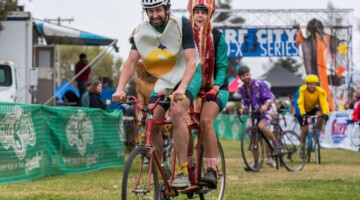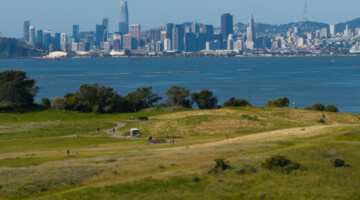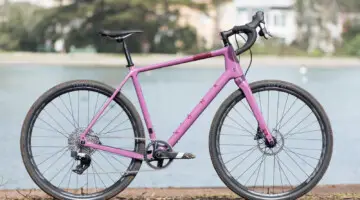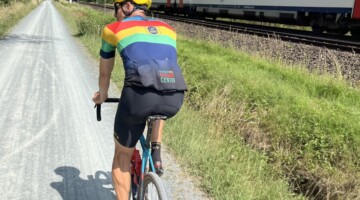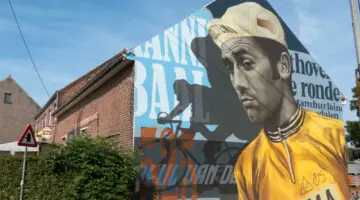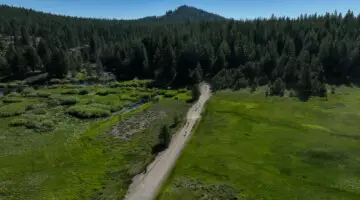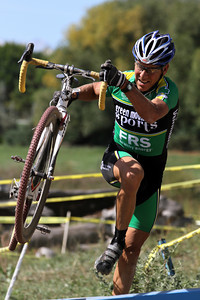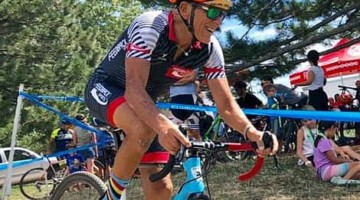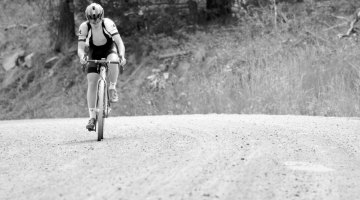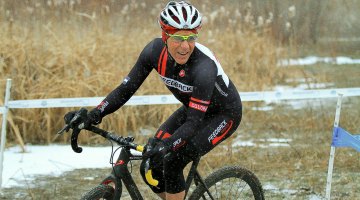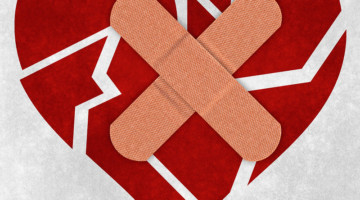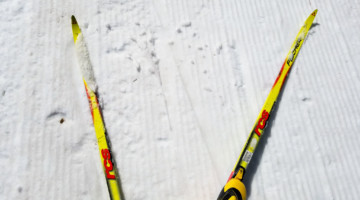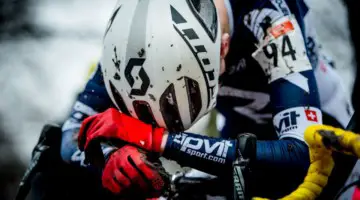by Lee Waldman
’Cross season is winding down. For most US riders, it’s been over since Nationals. Hey, it was over for me on November 9, but I’ve already written too much about that. I don’t know if what I’m about to write counts as whining, rationalizing, or simple self-preservation, but at least I feel a bit comforted by the fact that I wasn’t the only one to be dealt a rotten hand at times this season. Riders as highly decorated as Tim Johnson, Jon Page and Katie Compton all suffered from the vagaries of bad luck at precisely the wrong time. Now, I don’t presume to approach the lofty level of ’cross accomplishments that those riders have; but in some small way I think I can connect with the sadness and frustration that they experienced.
It just sucks to have something taken away before we’re ready.
This started out with so much hope. Nationals were coming to Boulder. With the exception of a badly timed pair of broken ribs (is there ever a good time for broken ribs?) my summer prep had gone well. The early part of the ’cross season resulted in some good rides and I was feeling confident that when January rolled around, I’d be ready to represent myself well in front of the local ’cross community. After Holy Week I felt even better. I was tired after five days of racing in 11 days, but I could feel the potential. Sadly, one misplaced step changed everything when my heel slipped on a slick grassy downhill remount. One wrong move and my hamstring tendon ruptured completely. Want to know how painful it was? A friend who was watching from the side of the course thought I was having some sort of seizure. Now, three months after the injury, and almost six weeks after surgery to reattach the tendon, I’m ready to impartially look back on the experience, and the lessons learned.
Lesson #1: Listen to your inner voice. On the day of the accident, I woke up knowing that it was a mistake to race that day. My head just was not there. We’ve all had those days. My friend Karen used to call them her “bad attitude” days. The ones where we just don’t want to race. Being the stubborn cuss that I am, I chose to ignore the negative thoughts. I should have listened because my race warm-up went almost as badly. I should have packed up immediately after I dumped it head-first into a mud hole on my first warm-up lap. Prudence would have led me to pack up and go home at that point, but no, I bravely (or stupidly) soldiered on. Everything I did that morning was lackluster. My start was poor and my pitiful attempt to move up at the wrong time and in the wrong place left me writhing on the side of the course.
Lesson #2: If you think there’s something wrong, there is. I knew immediately that I’d blown it this time. I’ve been able to ignore, or at least suffer through almost every injury I’m had racing bikes. Broken collar bone? No problem. Crushed elbow? Hey, it hurts but no big deal. Broken ribs? Just don’t hug me too hard and I’ll be OK. This time, when I had to drive home without really sitting on the seat, I knew it wasn’t good. But, I chose to minimize it to myself and to my wife. I have to credit this woman, who has seen me through too many accidents and painful recovery periods to count. I almost didn’t go to the emergency room and in the end, only did so because of her. That visit at least helped me understand that, yes, I really did hurt myself. The swelling and the bruising should have told me as well, but I’m sometimes not the brightest light bulb in the pack. Even in light of those warning signs it still took me three more weeks to point out how weak my leg felt. That was when I finally had the MRI that I should have had immediately. Being brave did nothing but set back my recovery by almost a month.
Lesson #3: Listen to your doctor. This has been that one time when I can proudly say that for once in my life I did listen. I don’t typically follow the “suggestions” of my doctors when injured, preferring to fall back on the philosophy of “ I’m a fast healer with a high pain threshold.” My doc wouldn’t let me get away with that. Thanks to him, and my wife, I was a good patient.
Lesson #4: After you’ve hurt yourself, watching the rest of the “abled” world enjoy their rides, take a deep breath. When you’re driving, to ignore the plethora of riders that you pass as you’re being driven from one place to the next. I had to take it one step further to keep my sanity. I had to actually curse at them, sometimes out loud, sometimes under my breath. Did it help? No. This has arguably been the hardest lesson for me.
Lesson #5: Play lots of cribbage and buy an intricately difficult jigsaw puzzle. Did this help? A little. At least for a few hours I stopped feeling sorry for myself.
Lesson #6: It’s OK to feel sorry for yourself but it’s not OK to take it out on everyone in the general vicinity. Because if you do, you’ll soon be by yourself and you still won’t be healed any faster.
Lesson #7: Talk to your friends. You can even complain, but don’t overdo it. If they are friends, they’ll understand. They’ll even call you back when you leave them whiny messages.
Lesson #8: (This has been my biggest challenge.) Don’t worry. That hard-earned fitness will return. At least that’s what I’m told by others who have been where I am now. I can only hope that they are trustworthy because I’m relying on them and their words of encouragement.
Lesson #9: The world, for the disabled, is an enormous challenge. After almost six weeks on crutches, I’ve found a new level of respect and admiration for those with physical and mental handicaps. Our world is not fair to them. I’ll leave it at that.
Lesson #10: Trust the Universe. In it’s own cruel way, it’s giving you what you need. Maybe it’s rest, maybe it’s time. It gave me two very important gifts. The first – a renewed appreciation for the sport that we all love. The second – time to dedicate to a father who was in the act of leaving this world. (He passed away peacefully in his sleep on February 6.) My season will be dedicated to him.
This seems like the most appropriate place to stop, and so I will.
Please, go ride your bike and dedicate part of it to my father, Stanford A. (Shep) Waldman.





